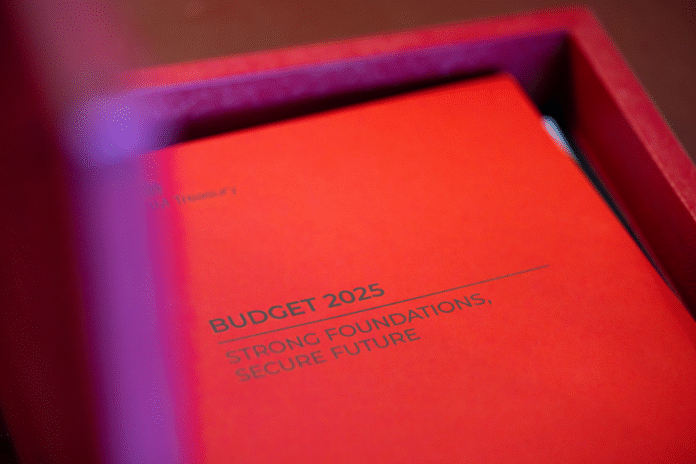Landlords are set to see an increase in their tax bills following the Chancellor’s decision to raise income tax on property earnings by two percentage points.
Analysis from Hamptons shows that the impact will vary depending on how the mortgage interest tax credit is treated alongside the rise.
Under the new rules, a lower-rate landlord will pay 22% tax on their property income profit, while the mortgage interest credit remains fixed at 20% unless updated by the Treasury.
This mismatch could result in a more substantial rise in liabilities for mortgaged landlords, who make up the majority of the sector.
The figures illustrate how the change will play out for the average landlord, based on typical rental income of £16,478 a year and a mortgage rate of 5.25%. If the mortgage interest credit is adjusted in line with the headline tax rise, a lower-rate taxpayer would see their annual tax bill increase from £699 to £769.
However, if the credit remains unchanged, that bill would climb to £926. For higher-rate taxpayers, the annual tax charge would rise from £2,973 to £3,043 if the credit is uprated, or to £3,200 if it is not.
UNDER PRESSURE
Industry analysts say the shift adds to a pattern of rising tax pressure on private landlords.

Aneisha Beveridge, head of research at Hamptons, said: “On its own, adding 2% to headline rates of income tax charged on property income isn’t going to break the bank.
“It will add around £70 a year to the tax bills of both lower-rate and higher-rate taxpayers with homes in their personal names, significantly less than adding National Insurance to rental income.
“However, given the way landlords are taxed, if their mortgage interest credit isn’t also increased in line with the rise, it could add up to £227 to average landlord tax bills.”
ERODING RETURNS
And she added: “This was another Budget in which landlords have faced a tax hike, albeit a relatively small one.
“The ‘successive eroding of landlord returns’, as the OBR puts it, will provide an additional incentive to the 80% of landlords with homes in their own names either to sell up or move homes into a company structure.
“Recent months have seen the number of new buy-to-let companies surpass the six thousand mark, meaning a record 70,000 companies are likely to be set up this year.”
Hamptons said the shift is likely to encourage more landlords to incorporate as they seek to maintain returns at a time of rising costs and stricter regulation.
NAIL IN THE COFFIN

Mark Harris, chief executive of mortgage broker SPF Private Clients, says: “This Budget is a final nail in the coffin for landlords owning property in their own name.
“It is very hard to make a profit unless property is owned via a limited company structure. We have seen a growing number of clients either purchase investment property via this route or move existing portfolios in their own name over to a limited company structure and we now expect this trend to escalate.”
INCOME SQUEEZE

Steve Cox, chief commercial officer at buy-to-let lender, Fleet Mortgages, said: “Instead of the widely anticipated announcement of National Insurance being levied on landlords’ rental income, the Chancellor has instead decided to increase basic, higher and additional property income tax rates from April 2027.
“This means landlords will now pay 22%, 42% and 47% from that date, and this is anticipated to raise £0.5bn every year from 2028-29 onwards.
“It means landlords will once again see their incomes squeezed, at a time when costs continue to rise, and the introduction of the Renters’ Rights Act was already adding further costs to landlords next year, all of which are likely to be passed on to tenants in the form of higher rents.”
TOO EARLY TO TELL
He added: “Add in this income tax increase to all the extra costs and responsibilities, and again landlords are going to see their margins on properties under further pressure.
“It is far too early to say how this will impact supply within the PRS, but of course it will require a reassessment by landlords and we are likely to see rents being reviewed in order to maintain profits.
“I think we can be fairly certain that this decision will move landlords even further towards using corporate vehicles for their portfolios; our most recent Rental Barometer already showed 81% of all mortgage applications we received were from limited company borrowers, and the direction of travel now looks likely to move even further towards this.”
HIGHER RENTS

Ryan Etchells, Chief Commercial Officer at Together, said: “It seems that landlords dodged the rumoured imposing of National Insurance on their income in the budget.
“However, the taxman will still take a sizable bite out of their incomes due to Reeves’ rise in income tax rates for sole trader landlords who hold properties in their own names.
“Landlords have been hammered with increasing tax and regulation over the last few years thanks to previous policy changes. Regulatory changes as well as the Renters Rights Bill means there will be more pain for landlords to contend with.
“All this will inevitably result in higher rents from next year onwards, which could force landlords to sell up altogether if they can’t make the numbers stack up, worsening the UK’s rental crisis.”



